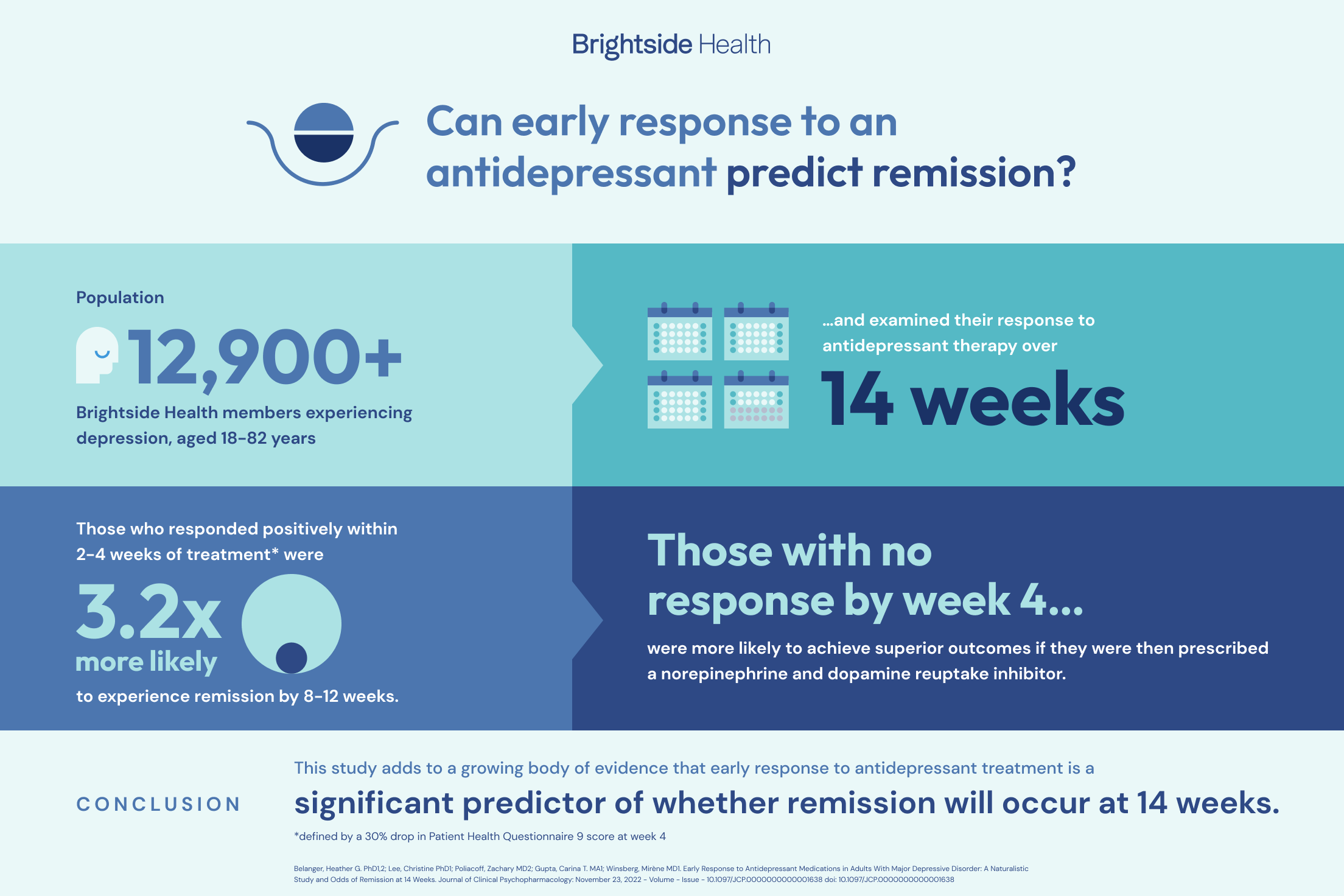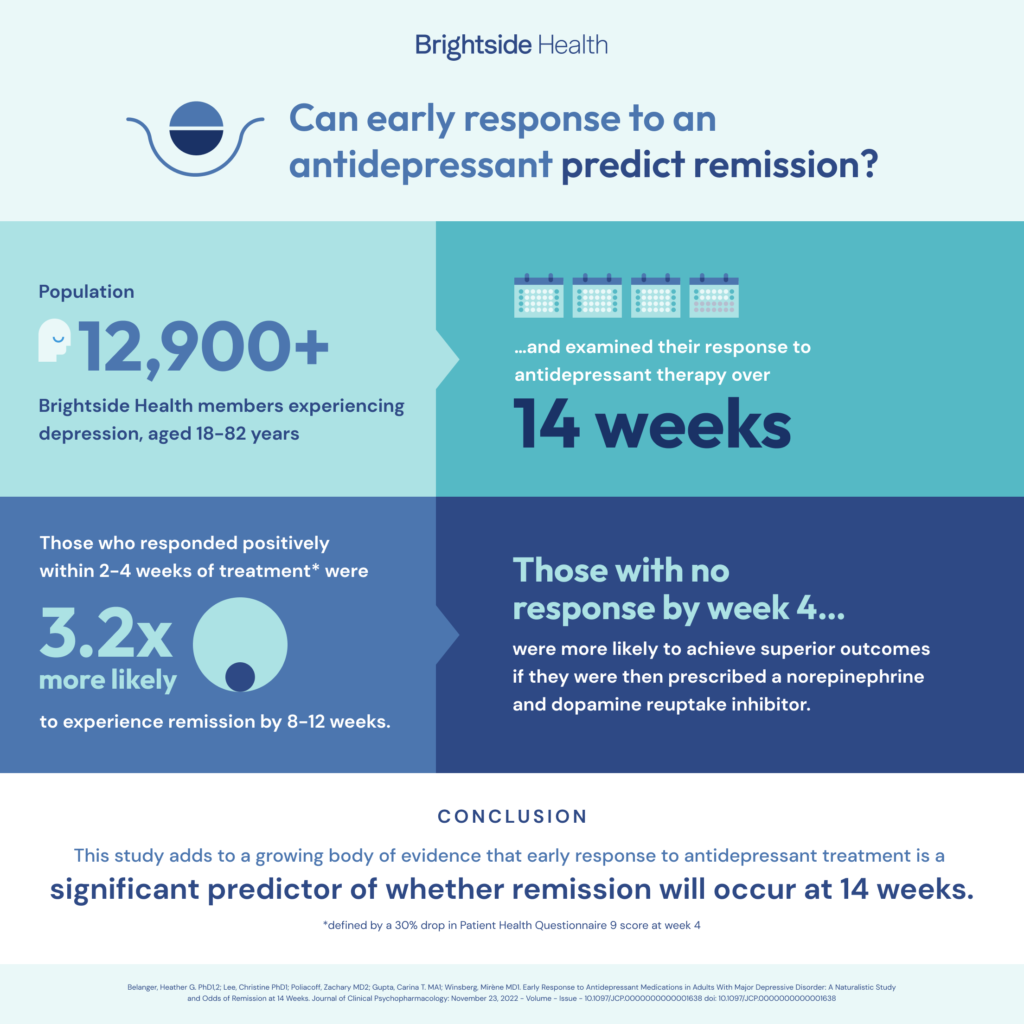Written by Ashley Kane,
Brightside Health
2 Minute Read

At Brightside Health, we’re committed to moving the needle in mental health by using data science to predict treatment outcomes. A recent peer-reviewed study published in the Journal of Clinical Pharmacology investigated the predictive value of early response to antidepressant treatment in a large cohort of patients. In this blog post, we’ll break down what the research team studied and why it matters.
What we found
In this study, the research team looked at archival data from 12,908 Brightside Health patients to examine whether early response after two weeks of antidepressant therapy could predict remission at 14 weeks. The researchers found that those who responded early to treatment (defined by a 30% drop in Patient Health Questionnaire 9 score at week 4) were 3.2 times more likely to experience remission than the group without early response when controlling for other variables.
The study adds to a body of evidence that early signal in response to antidepressant treatment is a significant predictor of later treatment outcomes.
The results further suggest that waiting until after eight weeks to switch antidepressant medication may be a mistake. Switching medications before four to eight weeks has typically not been recommended, based on the idea that antidepressant response is often delayed.
The study also examined which medications are effective when no early response is observed. The results suggest that among patients with a lack of response by week four, those prescribed a norepinephrine and dopamine reuptake inhibitor may achieve superior outcomes.
Why this matters
This is the largest naturalistic study of early response to antidepressants to date. This paper meaningfully adds to the body of convincing evidence that early improvement is a significant predictor of later treatment response.
It also raises the question of whether the common practice of delaying a medication switch until 6 to 12 weeks of treatment in nonresponders is a mistake. A more rapidly iterative approach to antidepressant selection and treatment may be called for to save patients time and increase their odds of long-term remission.
What’s next
Brightside Health’s research team will continue to explore how the field of mental health can use data science to predict treatment outcomes. This latest research is available in the open-access Journal of Clinical Pharmacology, found here.






